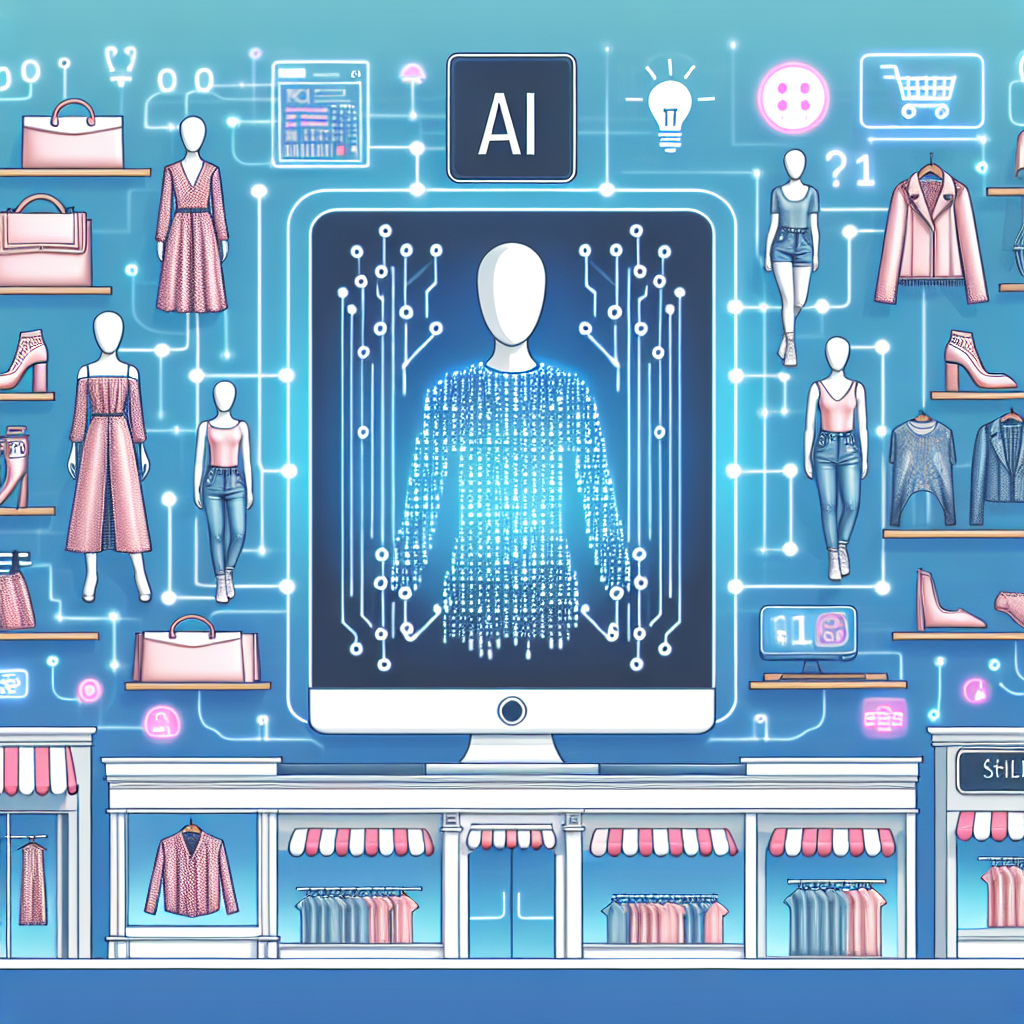The fashion retail industry has always been at the forefront of embracing new technologies to enhance the shopping experience for customers. In recent years, artificial intelligence (AI) has emerged as a game-changing technology that is revolutionizing the way retailers operate. From personalized recommendations to virtual try-on tools, AI is reshaping the future of fashion retail in exciting ways. In this article, we will explore the trends to watch in the coming years as AI continues to make its mark on the industry.
1. Personalized Recommendations
One of the most significant ways AI is transforming fashion retail is through personalized recommendations. AI algorithms analyze customer data, such as purchase history, browsing behavior, and social media interactions, to provide personalized product recommendations to each individual customer. This not only creates a more tailored shopping experience for customers but also helps retailers increase sales and improve customer loyalty.
Retailers like Amazon and ASOS have been using AI-powered recommendation engines for years, and the technology is only getting more advanced. In the future, we can expect to see even more accurate and personalized recommendations that take into account a wider range of data points, such as weather conditions, location, and even mood.
2. Virtual Try-On Tools
Another exciting trend in AI-powered fashion retail is virtual try-on tools. These tools use AI and augmented reality (AR) technology to allow customers to try on clothes virtually before making a purchase. This not only helps customers make more informed buying decisions but also reduces the likelihood of returns, which can be costly for retailers.
Brands like Warby Parker and Sephora have already implemented virtual try-on tools, and the technology is only expected to become more widespread in the coming years. As AI algorithms become more sophisticated, we can expect virtual try-on tools to provide even more realistic and accurate representations of how clothes will look on different body types.
3. Supply Chain Optimization
AI is also being used to optimize the fashion retail supply chain, making it more efficient and sustainable. AI algorithms can analyze data from various sources, such as sales forecasts, inventory levels, and supplier performance, to help retailers make smarter decisions about production, distribution, and pricing.
By using AI to optimize the supply chain, retailers can reduce waste, improve inventory management, and ultimately increase profitability. In the future, we can expect to see more retailers leveraging AI to streamline their supply chain operations and make their businesses more sustainable.
4. Chatbots and Virtual Assistants
Chatbots and virtual assistants are becoming increasingly popular in fashion retail, providing customers with personalized assistance and support throughout the shopping journey. AI-powered chatbots can answer customer queries, provide product recommendations, and even process orders, all without the need for human intervention.
As AI algorithms become more advanced, we can expect chatbots and virtual assistants to become even more intelligent and responsive, providing customers with a seamless shopping experience. By leveraging AI-powered chatbots, retailers can improve customer service, increase sales, and build stronger relationships with their customers.
5. Sustainability and Ethical Fashion
AI is also playing a role in promoting sustainability and ethical fashion in the industry. AI algorithms can analyze data to help retailers make more sustainable sourcing decisions, reduce waste, and improve transparency in their supply chain. By using AI to track and analyze the environmental and social impact of their products, retailers can make more informed decisions about their sourcing practices and help promote a more sustainable fashion industry.
In the coming years, we can expect to see more retailers using AI to drive sustainability initiatives and promote ethical fashion practices. By leveraging AI technology, retailers can not only reduce their environmental footprint but also appeal to the growing number of consumers who are looking for sustainable and ethically produced clothing.
FAQs:
1. How is AI impacting the fashion retail industry?
AI is revolutionizing the fashion retail industry in a number of ways, from personalized recommendations to virtual try-on tools. By leveraging AI technology, retailers can provide customers with a more tailored shopping experience, optimize their supply chain operations, and promote sustainability and ethical fashion practices.
2. What are some examples of AI-powered tools in fashion retail?
Some examples of AI-powered tools in fashion retail include personalized recommendation engines, virtual try-on tools, chatbots, and virtual assistants. These tools use AI algorithms to analyze data and provide customers with personalized assistance and support throughout the shopping journey.
3. How can retailers benefit from using AI in their businesses?
Retailers can benefit from using AI in their businesses in a number of ways, including increased sales, improved customer loyalty, reduced waste, and better decision-making. By leveraging AI technology, retailers can streamline their operations, provide customers with a more personalized shopping experience, and stay ahead of the competition in a rapidly evolving industry.
In conclusion, the future of AI in fashion retail is bright, with exciting trends to watch in the coming years. From personalized recommendations to virtual try-on tools, AI is transforming the way retailers operate and interact with customers. By embracing AI technology, retailers can improve the shopping experience for customers, optimize their supply chain operations, and promote sustainability and ethical fashion practices. As AI continues to evolve, we can expect to see even more innovative and impactful applications in the fashion retail industry.

